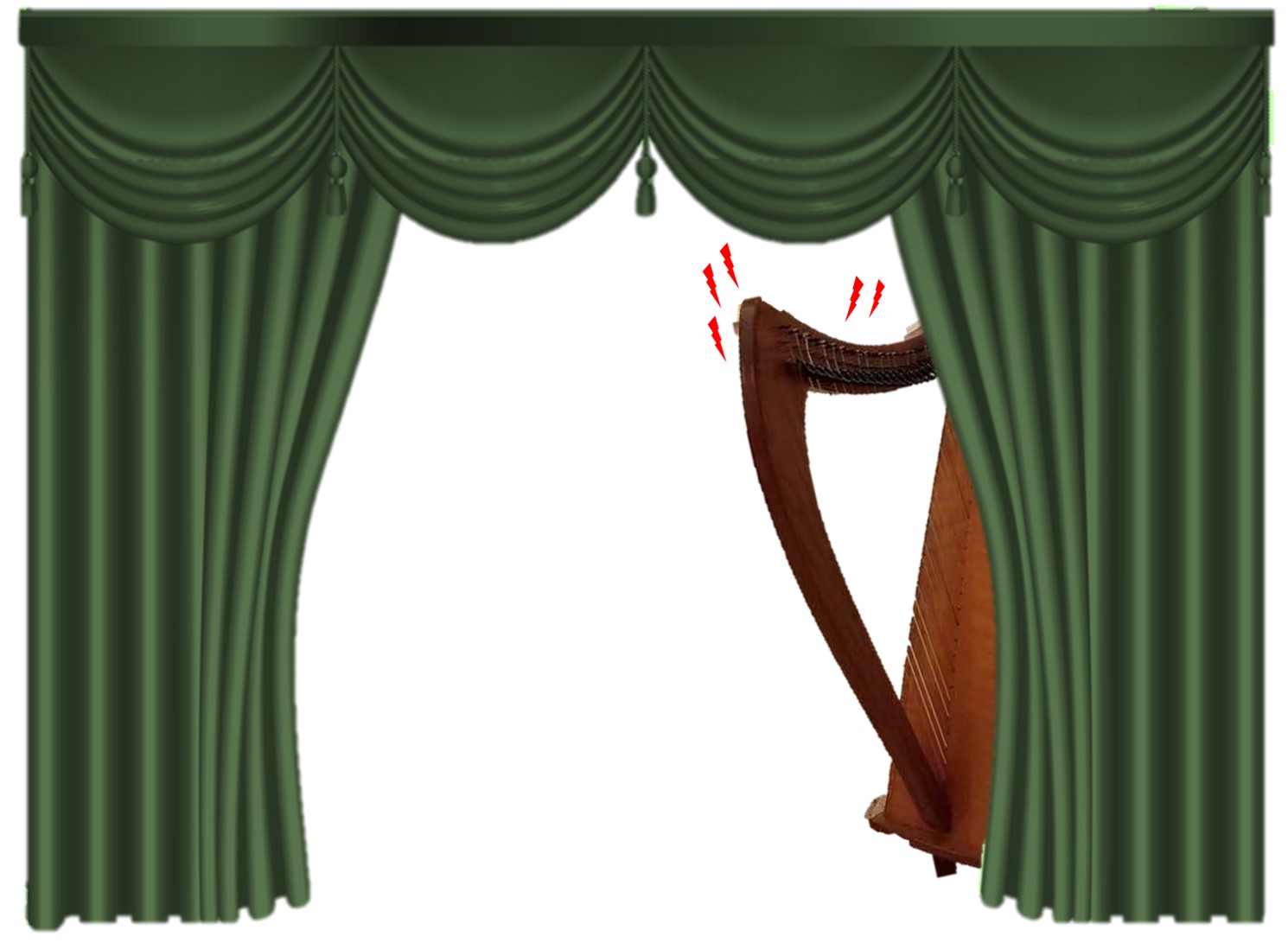The upside to this time of year is that there are plenty of opportunities to perform. E-v-e-r-y-o-n-e wants harp music at the holidays. Sometimes they even expect to pay for it!
The downside to this time of year is that there are plenty of opportunities to perform. So, your anxiety may be ratcheted up, and if you’re working a lot, it might stay up there.
A little anxiety is good for you and actually improves your performance. But sometimes, it gangs up on you or you have trouble controlling it. So, how do you overcome that anxiety?
- Do not deny it. There is nothing wrong with the way you are feeling. In fact, you could embrace it. What you don’t want to do is tell yourself that you shouldn’t feel anxious. If you do, you do – because you’re human! NB – I am not talking here about full blown anxiety attacks or panic attacks. These are different in that they may require you to seek help, not glib advice from me (some people actually sort of enjoy the sick-to-my-stomach-how-did-I-end-up-here feeling). If you need it, don’t deny that and seek help!
- Breathe. No, really, breathe. Deep, belly breaths will help oxygenate you, improving your focus and clarity. And pushing that crowding fog back where it belongs.
- Listen to yourself. Recently, just before a gig, I was feeling anxious. Way anxious. More so than is typical. A lovely, dear friend arranged for me to have a quiet space to be alone to prepare for my concert. I was so grateful! But once I got there, I found I was becoming more anxious. I kept changing my set list and fidgeting, and despite the deep breathing, I was not settling. I went back to the crowded room where the audience was gathering – and settled down immediately! No more fluttering heart or roiling stomach. I even felt at peace! For me, the final centering and calm had been on the day before, when I could clearly think about what I wanted to do. For my dear friend, that last moment’s quiet is a godsend. What works for her nearly drove me off the deep end. Know yourself and prep your way. Need 3 cups of coffee? Ok. Yoga’s your thing? Do it. Need to look your audience in the eye and get a feel for what you need to deliver? Than do that. Be you and do your thing.
- Find your “why”. You said yes to the performance. Why? We all have our reasons. Know yours and keep that forefront as you perform. If you need to, write it in big letters at the top of your set list. When you get edgy – read it again.
- Ridiculous and Sublime. Most of us worry about performing badly, thereby embarrassing ourselves or appearing foolish. This maybe especially true if you began playing as an adult. But here’s the thing – it’s not about you. The audience is likely to have just a few thought tracks focused on either “oooh, that’s so lovely” or “I wish I could do that”. Notice how none of it is about you – it’s all about the music. So, focus on your gift to the audience – you’re sharing, and they have agreed to partake – enjoy!
- Name your fear. Anxiety can grow from fear (of performing poorly, of being foolish, etc.). But like a mushroom, your anxiety will grow best in a warm dark place (like your mind). So take time to identify – and name – your fear. If it helps, write it down and bring it into the cold light. Then write down your opinion of that fear, what you would tell your best friend if they expressed that fear, and what the worst possible outcomes of the fear might be. This will help you really face it – afraid you won’t be prepared? Schedule more practice. Afraid you’ll look foolish? See above. Lather rinse repeat (you can do this with other fears in your life as well).
- Pay attention! No really. When you’re focused on how you’re feeling anxious, you are not paying attention to the right things. Pay attention to the harp, to the music, to your technique, and to your audience. That’s a lot to focus on – but it’s what’s important. What isn’t important is the random note that came out of your harp a minute ago, or that you wish you were done, or any other casual stuff that floats out of your brain. Stay present and pay attention.
But mostly, find what works for you. What works for you for overcoming your performance anxiety? Let me know in the comments.

